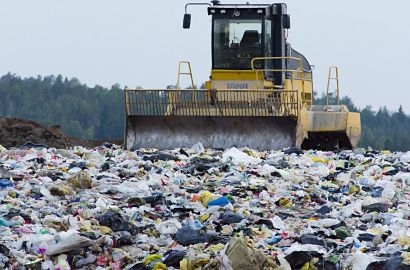
The two companies will jointly develop a portfolio of landfill gas-to-renewable natural gas projects throughout the United States. In addition, LS Power has acquired an interest in a landfill gas-to-renewable natural gas (RNG) project in Lawrence, Kansas operated by The Landfill Group, LLC.
The operating and development projects have long-term contracts with host landfills and convert landfill gas gathered onsite into pipeline-quality RNG. The RNG is then procured by utilities, gas marketers, compressed natural gas vehicle owners and others who are shifting toward renewable fuels with the goal of reducing greenhouse gas emissions.
“Evolving consumer preferences coupled with the utility, regulatory and legislative push to decarbonise our energy systems are driving growing demand for natural gas with green attributes” said David Nanus, Co-Head of Private Equity at LS Power. “We are excited about partnering with The Landfill Group, a leading RNG project developer with decades of landfill gas experience, to help advance these initiatives.”
Joe Esteves, CFO and Co-Head of Private Equity at LS Power, added that the partnership represents LS Power's initial investment into the broader renewable fuels market, where the company anticipates expanding opportunities as decarbonisation efforts continue to increase and that reduction in the carbon intensity of the energy/power system is a secular long-term trend and one that is reflected by investments made over the years, which also include renewable generation, energy storage and distributed energy resource platforms such as CPower and EVgo.
Initial investments from the LS Power/The Landfill Group partnership will target sites in Georgia, Iowa, Pennsylvania, North Carolina and South Carolina. The partnership will leverage LS Power's broader energy infrastructure platform expertise in project development, commodity, environmental attribute and credit risk management, natural gas marketing, public policy and market development, and project finance.
RNG projects offer significant climate benefits by materially reducing methane emissions and replacing fossil fuels with renewable fuels. In recognition of these benefits, federal and state programs have developed to incentivise the conversion of biogas to RNG, including the federal Renewable Fuels Standard, as well as Low-Carbon Fuel incentive programs in states such as California and Oregon.
Renewable fuels, such as RNG, are a growing force in the market. According to the US Energy Information Administration's Annual Energy Outlook 2020, over the last five years, RNG use as a transportation fuel has increased 291 percent, avoiding over seven million tons of carbon dioxide.
For additional information:

